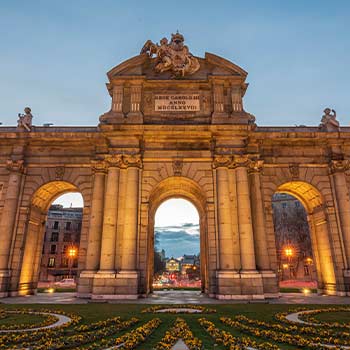Philosophy and the Ethics of Political Violence: Peace, War and Terrorism - Period 1
Business & Economics Program
Amsterdam, Netherlands
Dates: mid Aug 2025 - early Jul 2026

Philosophy and the Ethics of Political Violence: Peace, War and Terrorism - Period 1
OVERVIEW
CEA CAPA Partner Institution: Vrije Universiteit Amsterdam
Location: Amsterdam, Netherlands
Primary Subject Area: Political Science
Instruction in: English
Course Code: S_PEV
Transcript Source: Partner Institution
Course Details: Level 200
Recommended Semester Credits: 3
Contact Hours: 84
DESCRIPTION
For centuries, in the Western World the concepts of war and peace have been developed and discussed in the field of philosophy linked to theology, due to the fact of the corpus christianum (the medieval concept of a unity of church and state). The just-war-theory is the predominant model of reasoning in this tradition, challenged only by some religious minorities who pronounced non-violence as the moral obligation within Christian ethics. During the Enlightenment period, this societal unity of political and religious powers begins to fall apart, due to new ways of thinking and reasoning. This has lead the (European) societies into violent (freedom-) struggles within, resulting in a clear separation of "church and state". This paved the way to secular states on the one hand and religious plurality on the other. Nevertheless, current phenomena like some forms of terrorism, "New Wars" as well as the "Renaissance of the Just War theory" demonstrate, that moral reasoning of religious communities still plays a major role in orienting people of faith - and implicitly also people of no faith - in their ethical judgments. This is not only true for some ethical dilemmas (such as collective self-defense, emergency assistance for populations at risk or violent struggles for political liberty and independence) but also for concepts of non-violent resistance, peace-building, and reconciliation (see Mahatma Gandhi, Martin Luther King, Nelson Mandela, World Council of Churches etc.). In times of economic globalization, cultural diversity, and religious plurality the discourse on war, (non-) violence and peace (-building) finds itself in rapidly changing contexts - and new forums of analysis and engagement.
Vrije Universiteit Amsterdam (VU Amsterdam) awards credits based on the ECTS system. Contact hours listed under a course description may vary due to the combination of lecture-based and independent work required for each course therefore, CEA's recommended credits are based on the ECTS credits assigned by VU Amsterdam. 1 ECTS equals 28 contact hours assigned by VU Amsterdam.
Vrije Universiteit Amsterdam (VU Amsterdam) awards credits based on the ECTS system. Contact hours listed under a course description may vary due to the combination of lecture-based and independent work required for each course therefore, CEA's recommended credits are based on the ECTS credits assigned by VU Amsterdam. 1 ECTS equals 28 contact hours assigned by VU Amsterdam.






